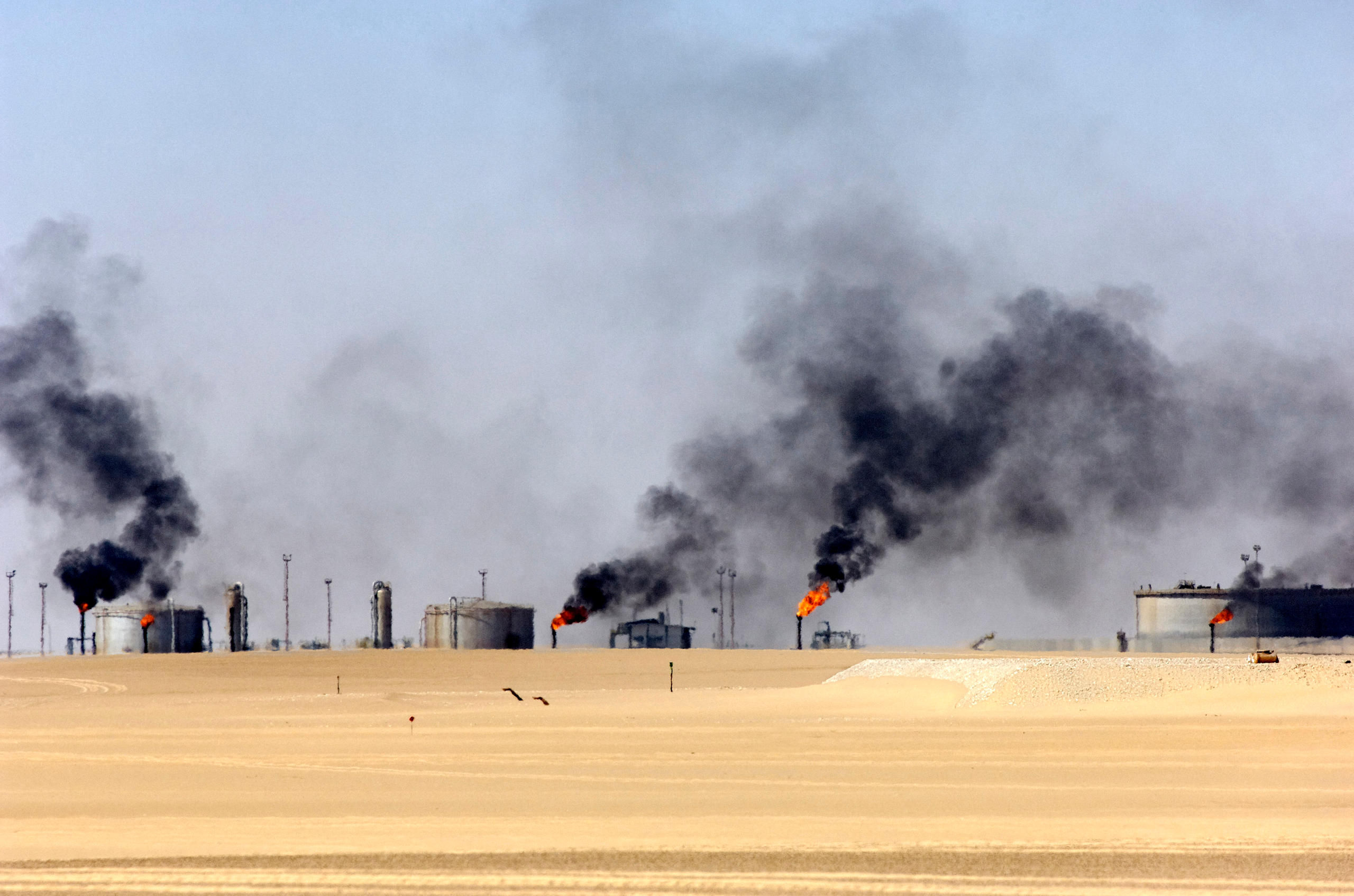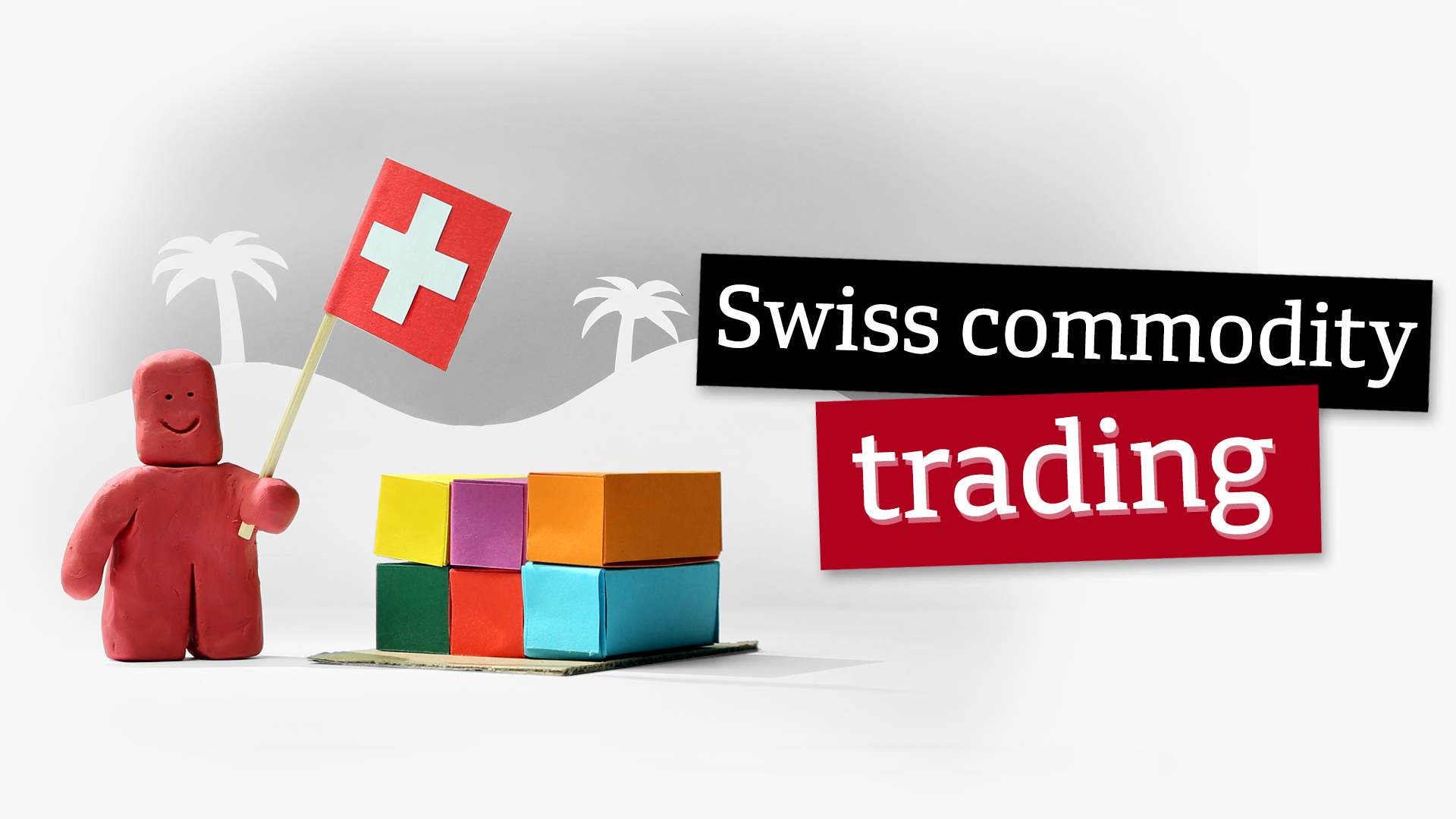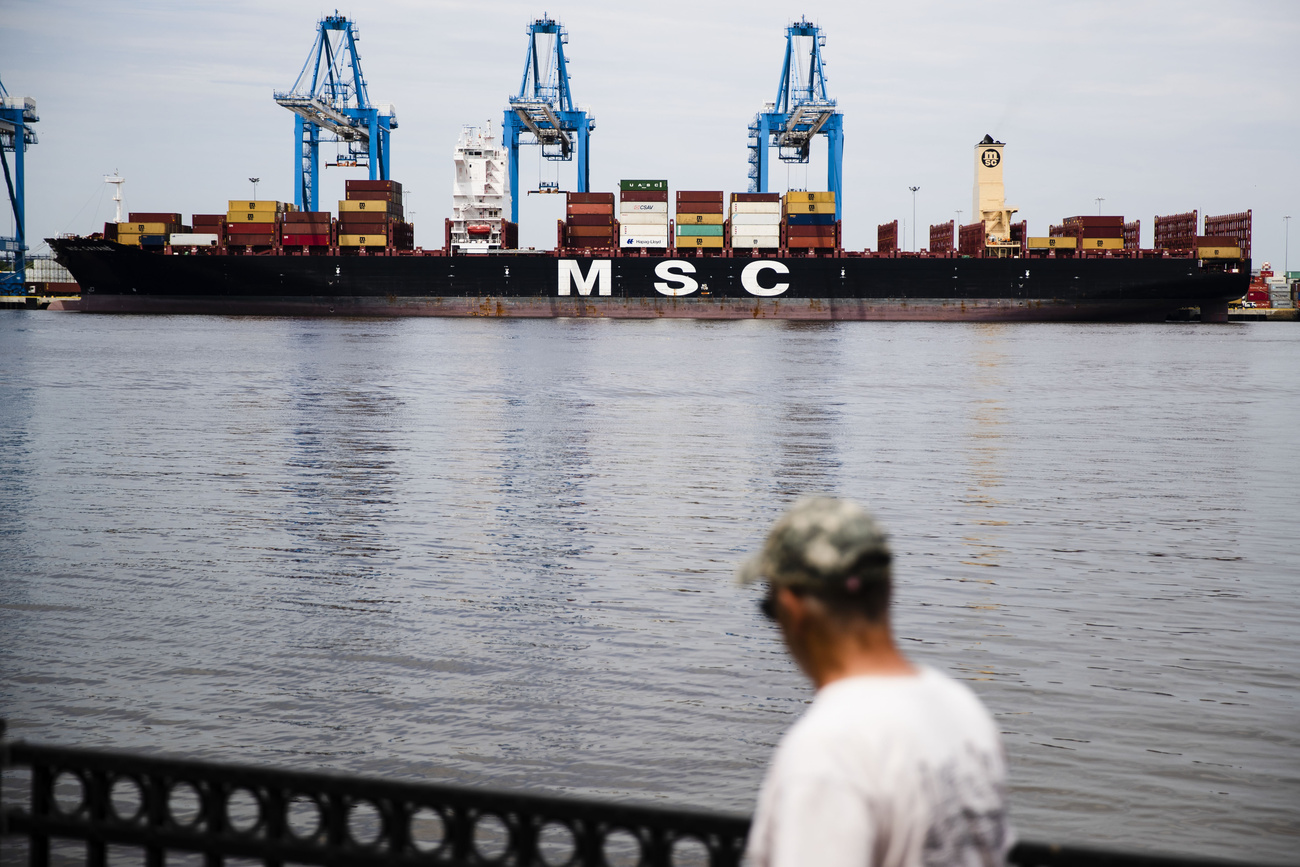
Switzerland tackles more international bribery cases but gaps remain

A Bahraini banker flew to Switzerland at the end of last month to testify in court about his role in a Libyan oil graft case. He was found guilty of bribery and ordered to pay $1.5 million (CHF1.4 million). This is one of the rare guilty sentences delivered by a Swiss court since a law criminalising the bribery of foreign public officials was passed in 2000.
Last week, a Swiss court ordered the son of former leader Muammar Gaddafi’s oil minister to pay $1.5 million in a corruption case. The case involved Mohamed Ghanem, the CEO of a Bahrain-based Islamic investment bank and the son of Shokri Ghanem, who drowned in mysterious circumstances in 2012.
The Swiss Federal Criminal Court said in its judgment that it found Ghanem “guilty of passive bribery of foreign public officials” without giving further details of the alleged incident. At the heart of the affair was a payment of $1.5 million made into the Swiss account of one of Ghanem’s offshore companies in 2007.
For the prosecution, this money was a kickback received for having facilitated – through his father – a joint venture between Libya’s National Oil Corporation (NOC) and the Norwegian multinational Yara, which was seeking to establish a presence in Libya. His father was the chair of NOC from 2006 to 2001 and a key figure in Muammar Gaddafi’s regime.
For the defence, the man is innocent: he provided consultancy services; moreover, Switzerland lacks territorial jurisdiction over this case.
Such legal cases are rare for Switzerland, a signatory of the Organisation for Economic Co-operation and Development (OECD) Anti-Bribery Convention and home to many multinationals doing business in high-risk jurisdictions. But they are on the rise. To date, the Office of the Attorney General of Switzerland (OAG) has convicted 11 people and seven companies for bribery of foreign public officials. These figures are by no means high but the OECD gives credit to Switzerland for picking up the pace on prosecutions.
Switzerland: a country exposed to foreign bribery
“Switzerland has a leading, and sometimes dominant, position in a number of the economic sectors that not only play a key role in its economy but also expose it to relatively acute risks of foreign bribery,” reads an OECD report on Switzerland published in 2018. One of the sectors highlighted as particularly prone to corruption is raw materials. That’s because the businesses active in this field deal with authorities and state-owned companies in economically vulnerable countries with weak legal frameworks.
The financial sector is also exposed, as demonstrated by the involvement of various Swiss banks in international bribery scandals. In 2019, the government’s Interdepartmental Coordinating Group on Combating Money Laundering and the Financing of Terrorism published a report highlighting the elevated risk of money laundering in connection with foreign bribery in Switzerland.
Among the individuals convicted so far are executives of Swiss and foreign companies, an intermediary, a business lawyer, a financial operator and an oil trader. One of the sectors most affected by the court rulings is raw materials, in particular crude oil.
An OECD report on Switzerland and bribery said in 2020 that these convictions represent progress relative to previous periods. The OECD Working Group on Bribery commended “the continued action” of the Swiss attorney general but also urged Switzerland to increase its efforts to enforce foreign bribery legislation.
“We have repeatedly recognised Switzerland’s performance with respect to cross-border bribery,” Patrick Moulette, head of the OECD Anti-Corruption Division, told SWI swissinfo.ch. “Switzerland is one of the most active countries in this field.”
He stressed, nonetheless, that Switzerland must step up its efforts and implement some of the recommendations issued by the working group, such as strengthening the regulatory framework protecting whistleblowers.
Can do better
Given the magnitude of risks, experts find it problematic that Switzerland has convicted fewer than 20 people for bribery of foreign public officials in the past two decades. They warn shortcomings remain in the Swiss judiciary system. “This is a real problem, as the actual figures are much higher,” says Martin Hilti, director of Transparency International Switzerland. He sees many reasons for the lack of cases bought to court: “Corruption is a hidden practice that is difficult to unearth; prosecutors often lack the initial suspicion to open a case. Moreover, proving the crime of bribery is not easy, in particular in an international context that requires international judicial assistance, which often does not work with the countries involved.”
Some experts also believe the Swiss courts are too lenient with their penalties in foreign bribery cases.
“Where cases do lead to a conviction, the penalty is usually very light and hardly a deterrent,” laments David Muhleman, an expert at the Swiss NGO Public Eye.
OECD specialists share that view. “An analysis of the sanctions imposed against natural persons in concluded foreign bribery cases raises serious questions as to whether they are effective, proportionate and dissuasive,” the 2018 OECD report said.
The maximum penalty under the Swiss Criminal Code is five years’ imprisonment. But very few offenders are actually incarcerated. They generally get suspended prison sentences or may have to pay a fine.
“This is the practice for financial crimes involving people who are coming before the criminal courts for the first time,” explains Katia Villard, who teaches law at Geneva University. “What is more, most convictions for bribery of foreign public officials are made through summary penalty orders, which limits the scope of the sentence.”
Cases drag on for years
Investigating money-laundering and bribery cases is difficult, expensive and time intensive.
Cases are complex and can drag on for years. The acts for which the banker from Bahrain is being charged date back to 2007; the investigation was only launched in 2012. Further delays were caused by the accused filing multiple appeals. This is a legitimate legal action, but is often used by the defense to gain time.
According to Martin Hilti, effective prosecution of acts of bribery is also challenging because of internal shortcomings within the OAG: “It clearly lacks the resources to conduct complex proceedings and has organisational problems, plus the voluntary and forced departure of experienced attorneys has led to a significant loss of know-how in recent years.”
In addition to individuals, the OAG has stepped up the criminal prosecution of companies that were unable to prevent bribery. After a first conviction of Alstom Network Schweiz in 2011, others have followed: Nitrochem, Odebrecht, Dredging Environmental and Marine Engineering, KBA Notasys, Gunvor and Andrade Gutierrez. More cases are underway, some involving banks and multinationals such as Glencore, Sicpa and SBM Offshore.
Edited by Virginie Mangin

In compliance with the JTI standards
More: SWI swissinfo.ch certified by the Journalism Trust Initiative







































You can find an overview of ongoing debates with our journalists here . Please join us!
If you want to start a conversation about a topic raised in this article or want to report factual errors, email us at english@swissinfo.ch.